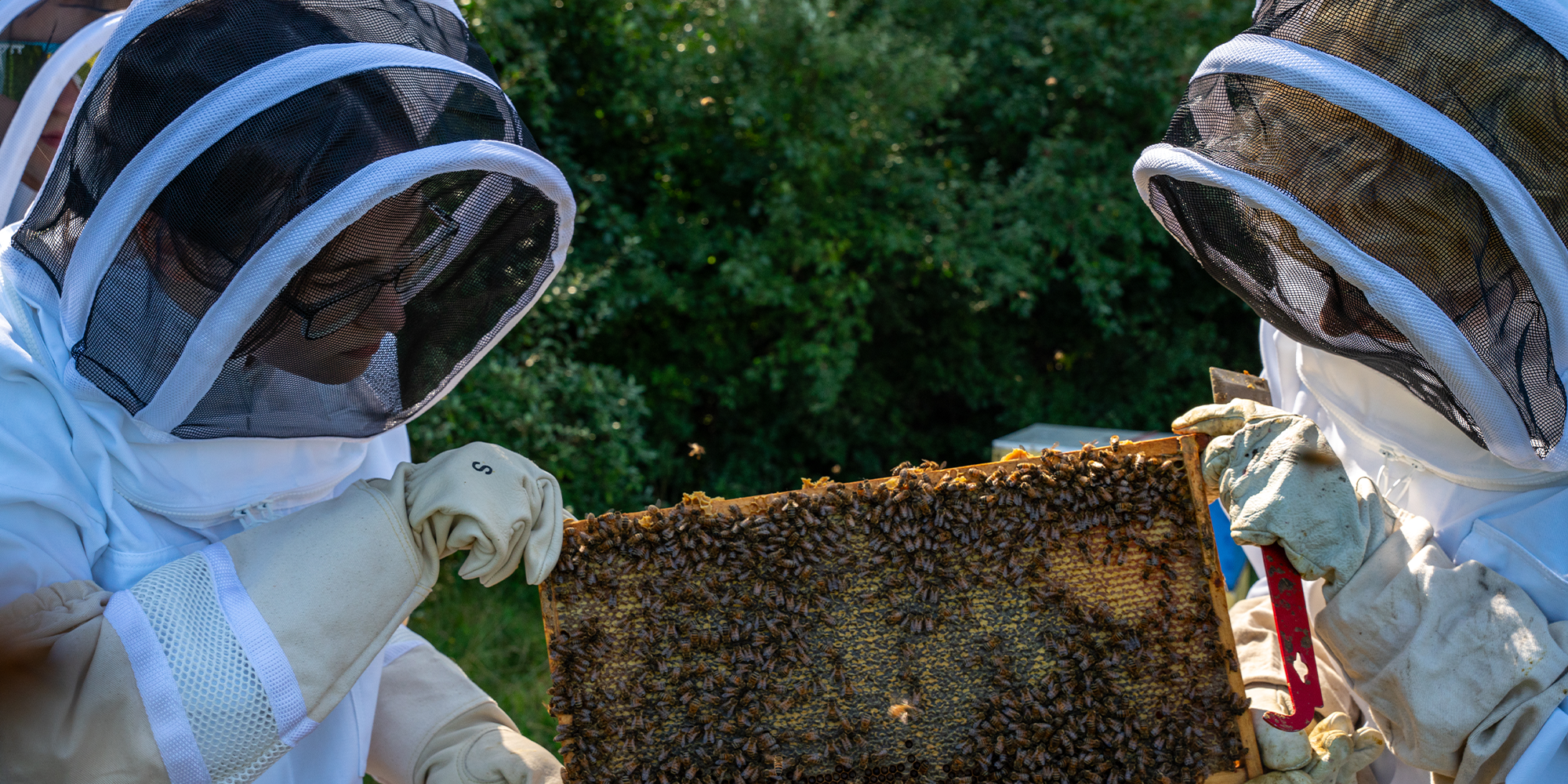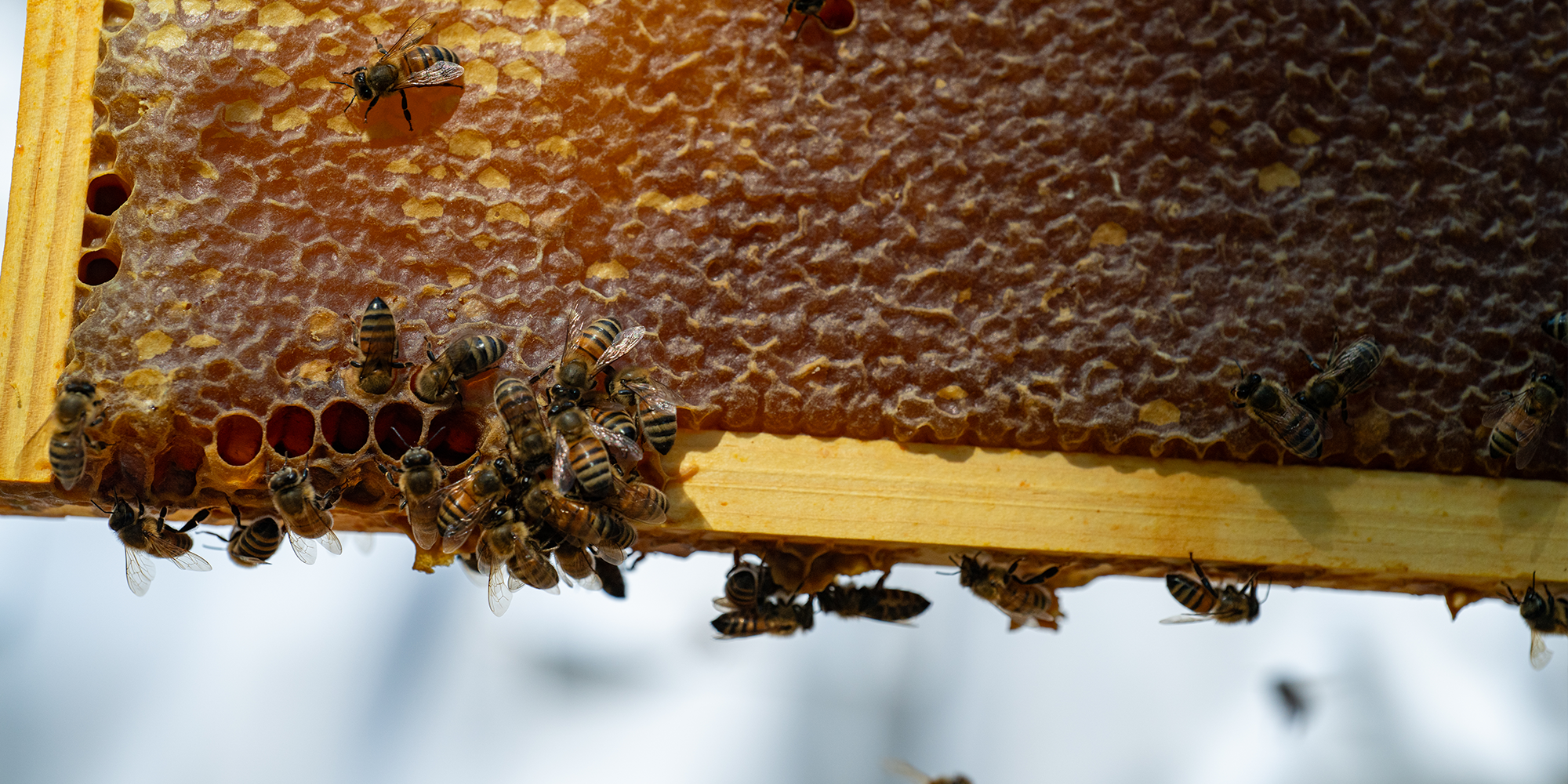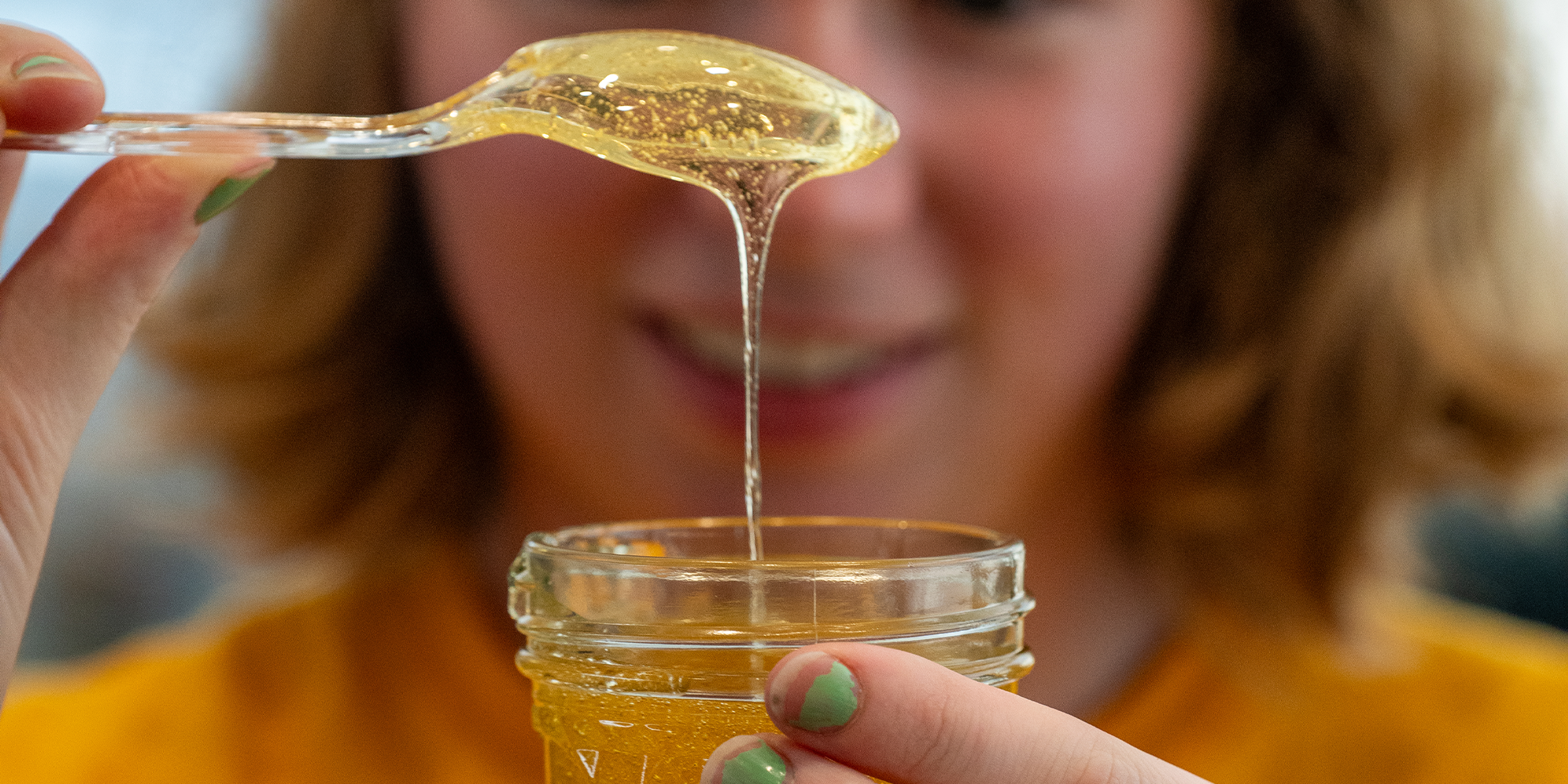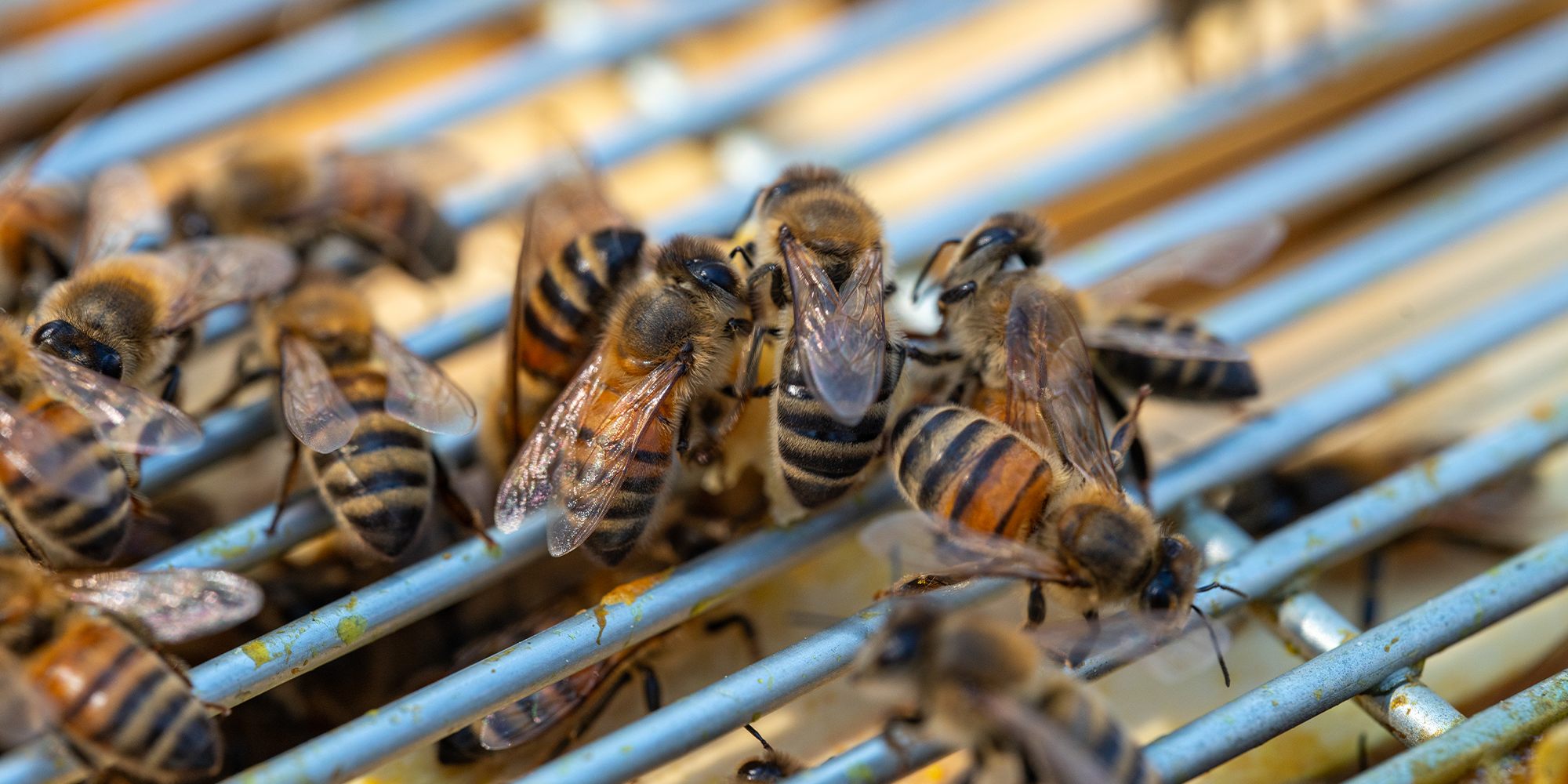Beekeeping can be quite an expensive hobby or career, with equipment costing upward of $730 per hive. But if students want to experience what beekeeping is like without breaking the bank, look no further than RIT's Beekeeping Club. Many students have little to no experience with beekeeping before joining, but the group offers a great introductory experience. Regardless of the time of year, students are welcome to join the various club activities.
The Club
Ellie Warren, a third year Biomedical Sciences and Applied Spanish Language student, is the president of Beekeeping Club.
“Within the club, we really try our best to make sure it's beginner-friendly,” Warren said.
Regardless of the time of year, students are welcome to join hive inspections, during which an e-board member guides them through the process of taking care of a hive. These sessions are also offered in ASL or Spanish for greater accessibility.
If students are concerned about being too close to bees, there are also meetings outside hive inspections that allow students to engage with beekeeping in other ways, such as presentations from guest speakers.
“That's one of the coolest parts of being at RIT,” said Kira Avery, RIT alumna and part of the COLA Interpreting Team, "is introducing folks that might not have an easy way into bees and beekeeping."
Even if students cannot attend any club meetings, they can still support the club through fundraising and events. The club not only harvests honey itself but also creates other products like lip balm, soap, wax wraps and more that they sell during the year.
“It can be a great hobby to help support the environment, while also [being] connected to the community,” Warren said.
Honey Extraction
Once a year toward the beginning of the Fall semester, the Beekeeping Club has a honey extraction. Honey extraction is a day-long process where the club extracts and bottles honey harvested from the hives they keep on campus.
The club has multiple extractions throughout the day, so students can sign up for a time slot and learn what keeping bees is like. Sign-ups are available to everyone, regardless of previous experience.
Every session is guided by a member of the e-board, who demonstrates the process and tools used for the group.
Many freshmen use the first semester to get exposed to new clubs, and the honey extraction is a perfect introduction to the club for them. Sean Crowley, a Finance major, and Alex Gregor, an Imaging Science major, are both freshmen who decided to see what Beekeeping Club has to offer.
“It was a really unique opportunity,” Crowley enthused, “I found it really encouraging to do more work with bees and get more in tune with that.”
Crowley found it fascinating because people see bees everywhere but never interact with them, so beekeeping is a way to engage with them in a way one normally cannot.
The sessions are built around participation, first showing students the process before letting them do it themselves. “The people in the club really know a lot, there’s so much to [beekeeping],” said Gregor. “[The club members] are really welcoming people.”
Even as an upperclassman, it is never too late to join the club. Isaac Southwell, a fifth year Computer Engineering Technology major, had been interested in attending the club for a long time.
“As a ‘new-bee,’ it was a great first experience,” Southwell said.
"As a 'new-bee,' it was a great first experience."
When asked if there was anything he would tell students interested in the club, he stated, “Don’t be afraid to give it a try ... you get to see something you'd never see otherwise.”
Byproducts and Sustainability
Students have a prime opportunity to learn plenty about bees and their importance to the environment during hive inspections and presentations. “All of it goes to show how can you take stuff from the hive and make it profitable,” Warren elaborated.
Honey can vary wildly depending on the plants in the region. Nectar not only creates different flavor profiles but also influences the color and consistency of honey. Fruit trees, for example, create a lighter color, while flowers like buckwheat — that bloom later in the season — create a darker tone, according to Warren.
“That's kind of neat to think about,” explained Avery. “What's the taste of our trees on campus and the wider community?”
"What's the taste of our trees on campus and the wider community?"
Not only do bees produce useful byproducts on which we rely, but they are also responsible for the majority of our agricultural pollination.
A major issue affecting bees’ health is the lack of diversity in their diet, which is often seen in bees that pollinate only a select number of crops. Many farms place hives in the middle of one crop, which limits the natural diversity of the bees’ diet.
A lack of variation in their diet can drastically impact their health, not to mention other issues. Diseases such as deformed wing virus, which is spread by varroa mites, are also very harmful to not only honeybees but to all insects and pollinators.
Bee Anatomy
Bees' appearance and pattern depend on their job in the hive. A bee’s role is determined by the shape of the cell in which they grow and the kind of royal jelly they are fed. Drones, for instance, are much bigger than worker bees and are a darker color.
Beekeepers use these differences to their advantage by creating hive boxes to house the bees and optimize how they live. Many hive boxes have a divider that keeps the queen, drones and workers separate, so beekeepers can harvest frames for honey without having to worry about their contents.
Worker bees have “pollen baskets” on their legs to which pollen and nectar stick when they travel back to the hive. Pollen and nectar are then turned into honey or royal jelly — their food sources.
There is plenty that bees can teach about the environment, and they can be a window into other subjects. “It’s interesting to look through their home and see how they’re doing,” said Gregor.
Avery highlights how college is a unique opportunity for students to branch out of their comfort zone. She hopes that RIT can be an exposure for a lot of students to the intersection of beekeeping and other topics, such as technology.











